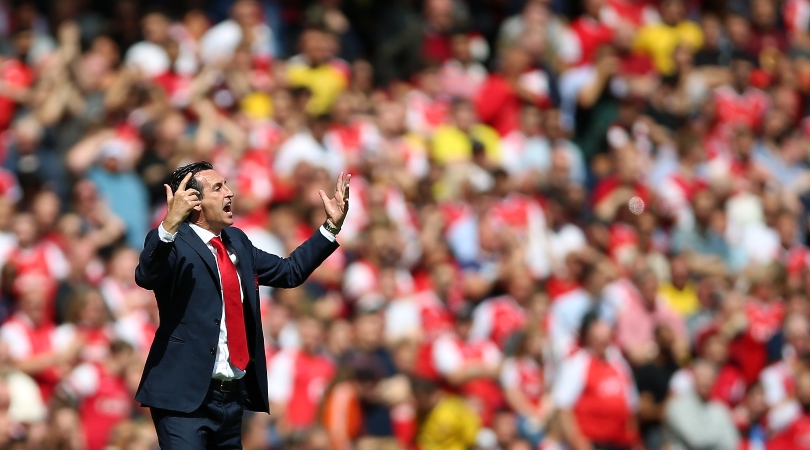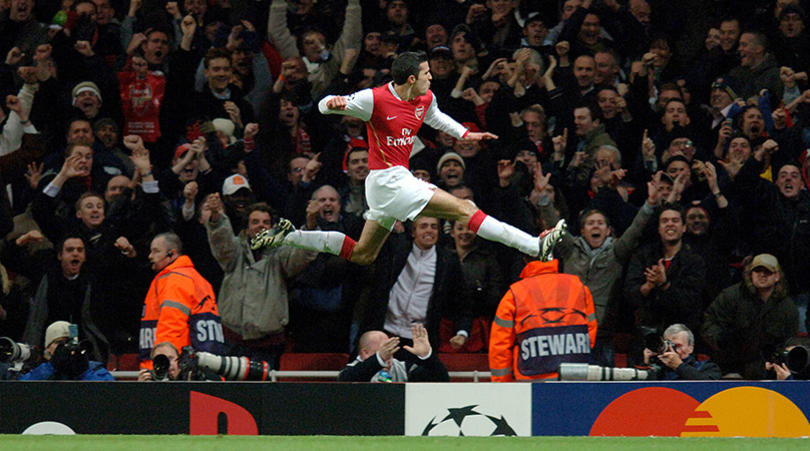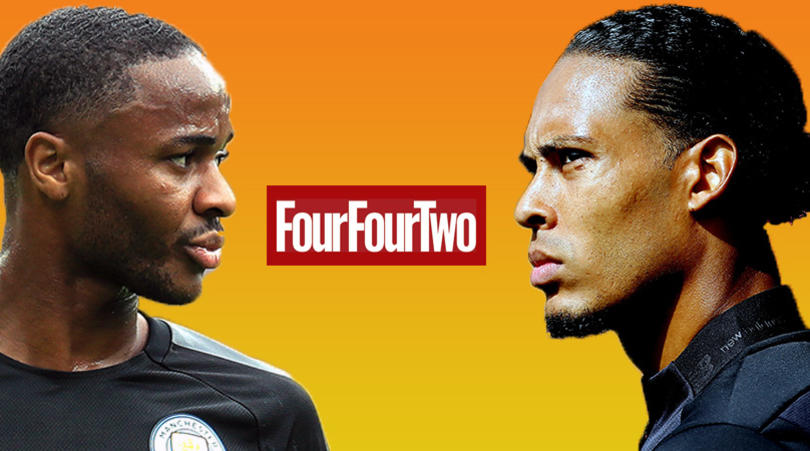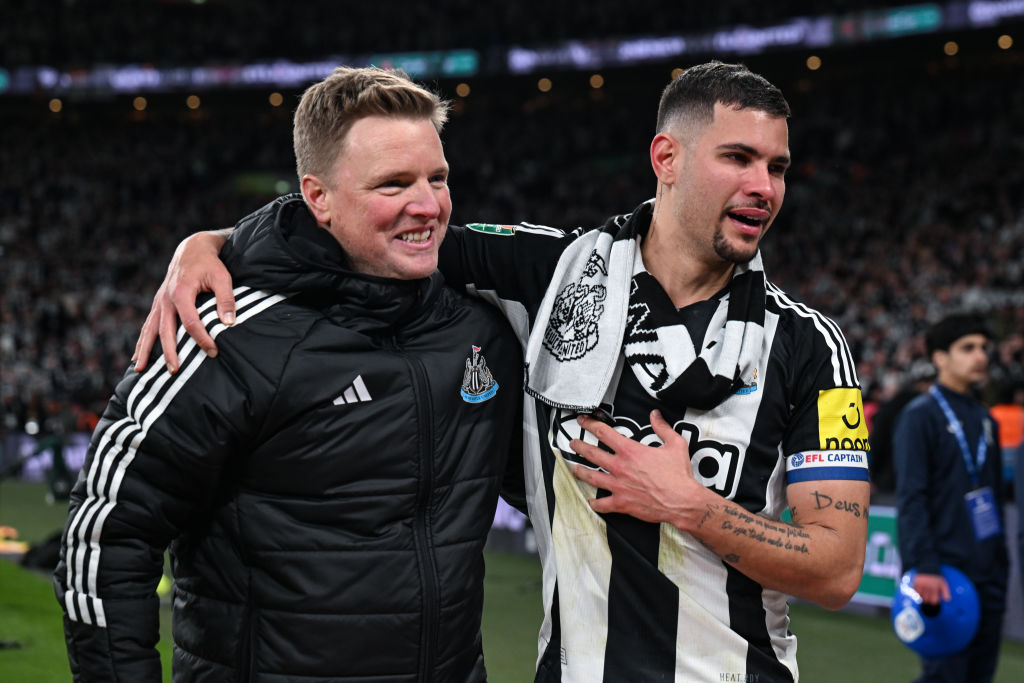Arseblog column: What kind of team does Unai Emery want Arsenal to be?
It will take more than Europa League victories over Eintracht Frankfurt to cover for the fact that the Gunners look like a side without a plan

Arsenal began their third successive Europa League campaign with an enjoyable 3-0 win over Eintracht Frankfurt in Germany on Thursday night. The goals and performances from Joe Willock and Bukayo Saka offered real encouragement that academy talent can make the grade, but it's a competition they don't want to be in. In truth, it's one they shouldn't be in.
Leaving aside the fact that they blew a chance at Champions League qualification in the final, getting hammered 4-1 by Chelsea in Baku, the Gunners should have been feasting from Europe's top table by virtue of their Premier League finish last season. However, Unai Emery's team took just seven points from their final seven games and finished a single point off fourth-placed Spurs.
When you consider the opposition they faced during that run-in, and that inside a week they were beaten by Crystal Palace at home – and convincingly by Wolves and Leicester – it put something of a dent in the Spaniard's reputation. There was widespread understanding of the difficult circumstances he found himself in – taking over from a legend like Arsene Wenger, enduring difficult injuries with little backing from the club during the January transfer window, but nagging doubts began to form about his approach to games and performances overall.
During the summer, however, the club worked hard to address key issues within the squad. Some under-performing players were let go, Arsenal's transfer record was shattered with the £72m capture of Nicolas Pepe from Lille, and the feelgood factor restored after a decisive period of action.
Raul Sanllehi, Arsenal’s head of football, won favour with fans and earned their trust. Not only did the transfers feel good, but the arrival of Edu Gaspar as technical director suggested there was a strategic rebuilding of Arsenal's power structures behind the scenes. The club needed modernising, having essentially been the fiefdom of one man for over two decades. Now, it was down to Emery to produce on the pitch.
The start to the season was reasonable. Defeat to Liverpool was not unexpected; a draw in the derby is never enough but not bad either; and there were two workmanlike wins over Newcastle and Burnley to kick things off. Then Watford happened, and if the end of last season was damaging for Emery, this has not just opened up old wounds but set alarm bells ringing all over the place.
After being 2-0 up at half-time over the league's bottom side, Arsenal's second half was an abomination. Watford had more shots than they've ever had in any other Premier League game, and it was also the most that the Gunners have ever faced in a single match since Opta began collecting data in 2003/04. Individual mistakes were a factor as Sokratis and David Luiz handed the home side goals, but given that Emery's side were under relentless pressure because of his inability to stem the Watford tide, the chances of errors were much greater.
Get FourFourTwo Newsletter
The best features, fun and footballing quizzes, straight to your inbox every week.
Tellingly, for the first time since he took over, players were critical of the approach and in-game management. Goalkeeper Bernd Leno said: "The distances between all parts of the team were too big so they had so much space, especially in the second half. It was too easy for them ... I don’t know why it was like that."
Ainsley Maitland-Niles continued the theme, saying that the team “should have changed” from their instructions to always play the ball short from goal-kicks. Granit Xhaka, captain no less, admitted that the team was “scared”.
Those are tacit criticisms of Emery's management, and underlying those are metrics which don't make for pretty reading. Under his guidance since arriving in 2018, Arsenal have made more errors leading to shots and goals than any other team in the Premier League. The 96 shots they've allowed the opposition in five games this season is more than any other team in England, France, Spain, Italy or Germany.
On top of that there's no discernible style of play. Formation and system changes define 'Emery-ball', rather than what the team does on the pitch. On the ball, Arsenal aren't effective enough from an attacking point of view; the midfield is a hot mess, and the less said about the defence the better.
When he took the job, Emery promised to make Arsenal a pressing team. He hasn't. He said they'd be protagonists. They aren't. He insisted he'd make the team more defensively secure. They're not. So it begs the question: what exactly are they, and what is Emery trying to produce? What kind of team do they profess to be, and how are they going to make the improvements required to ensure they qualify for the Champions League this season?
If you could see a defined tactical plan, or areas of Arsenal's play which showed green shoots, you could make a case that he's a man who needs more time. Right now, there's not much to suggest things are going to get significantly better, and the team is being propped up by the quality and ruthless goalscoring ability of Pierre-Emerick Aubameyang. That's not sustainable.
This isn't a fan throwing toys out of the pram after five games. It's been one season and five games, and that one full campaign ended disastrously.
There are serious and legitimate questions to be asked of where Arsenal are going under Emery, and having lost the faith of many after that Watford performance, he's got a big job on his hands to turn things around. Perhaps the performance against Frankfurt is a small step in the right direction.
While you're here, why not take advantage of our brilliant subscribers' offer? Get 5 issues of the world's greatest football magazine for £5 – the game's greatest stories and finest journalism direct to your door for less than a pint in London. Cheers!
NOW READ…
REVIEW FIFA 20: Volta’s street smarts unearth life beyond Ultimate Team
EXPLAINED Why footballers shouldn't get tattoos – and the science behind it
GUIDE Premier League live stream best VPN: how to watch every game from anywhere in the world


